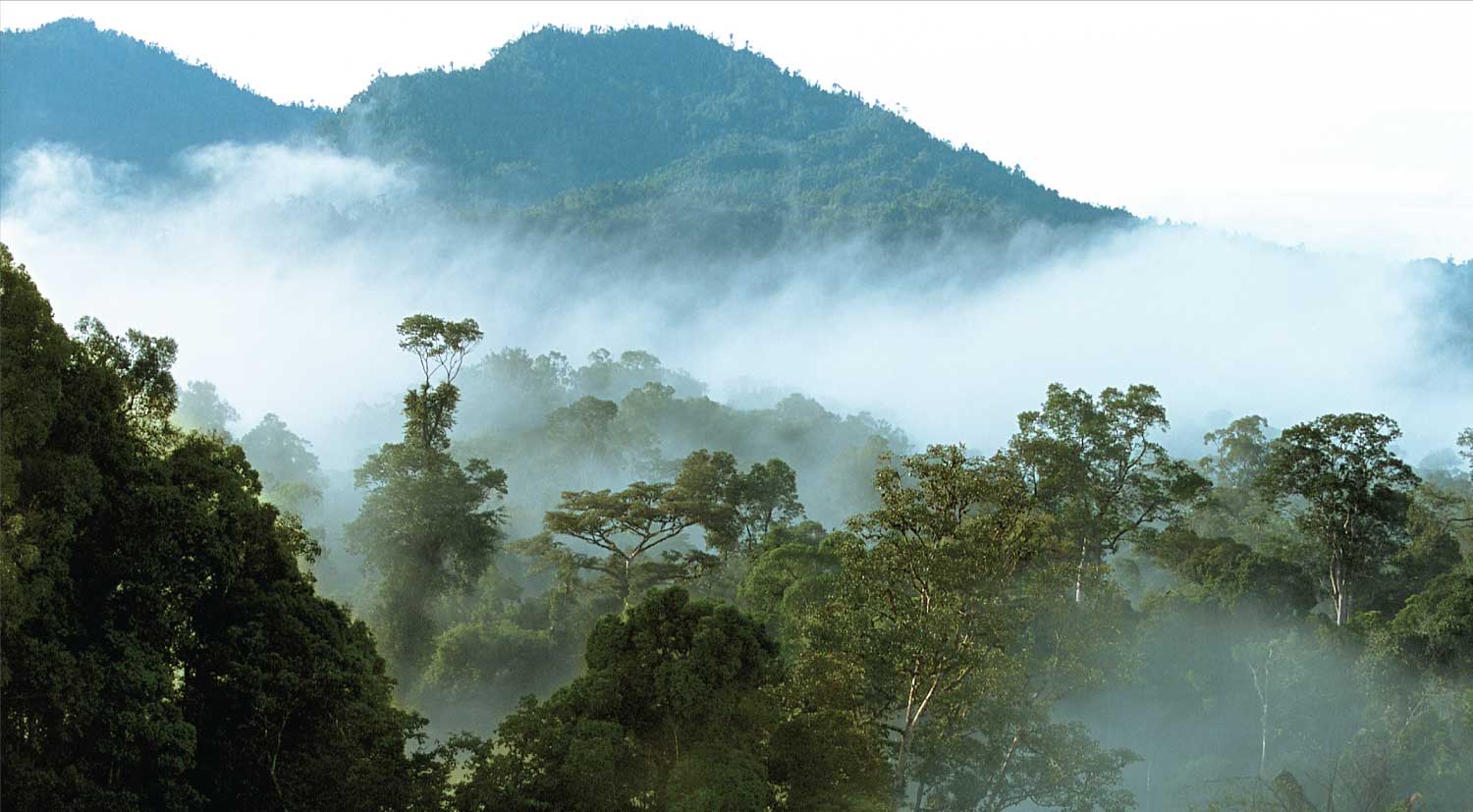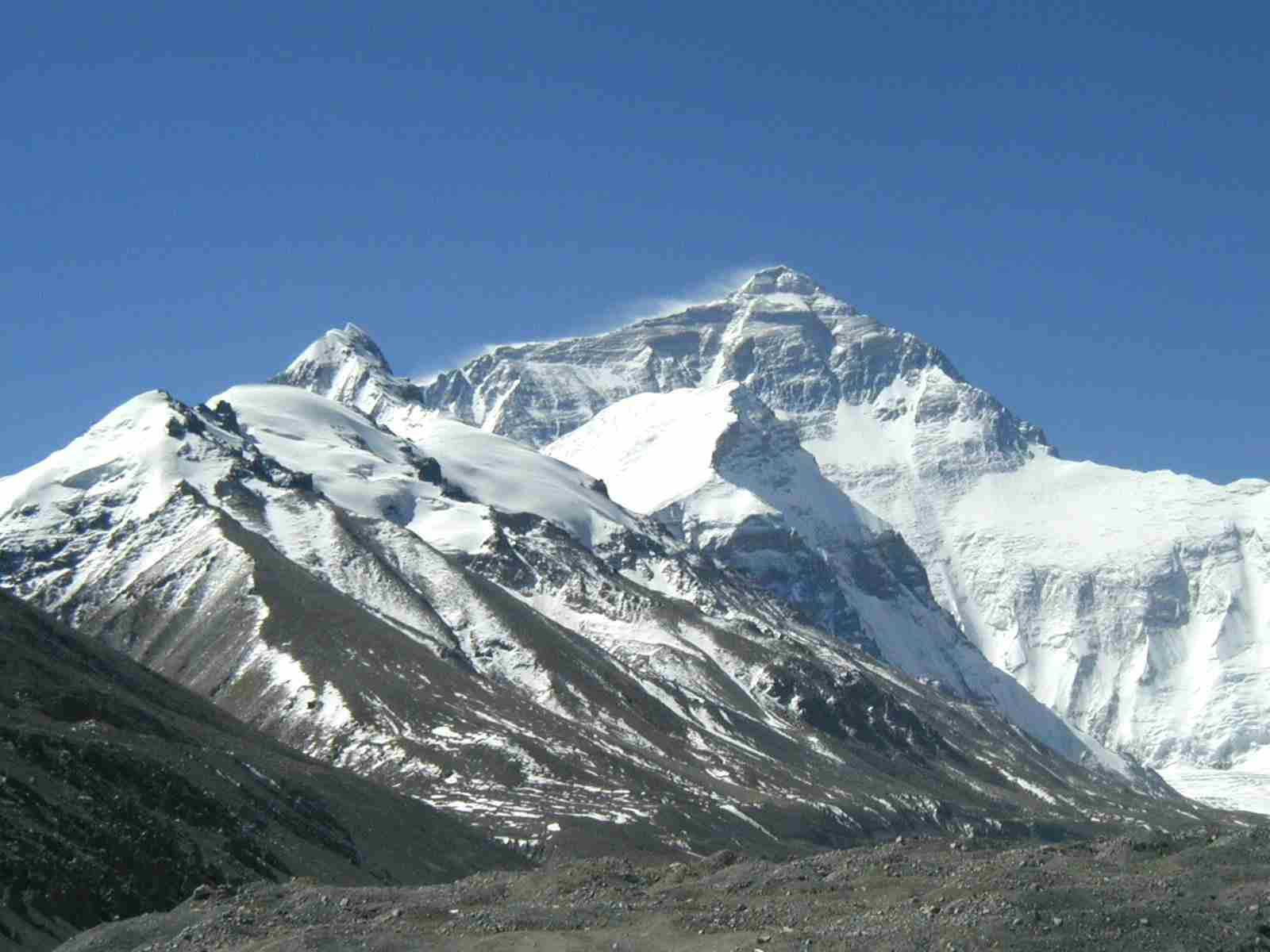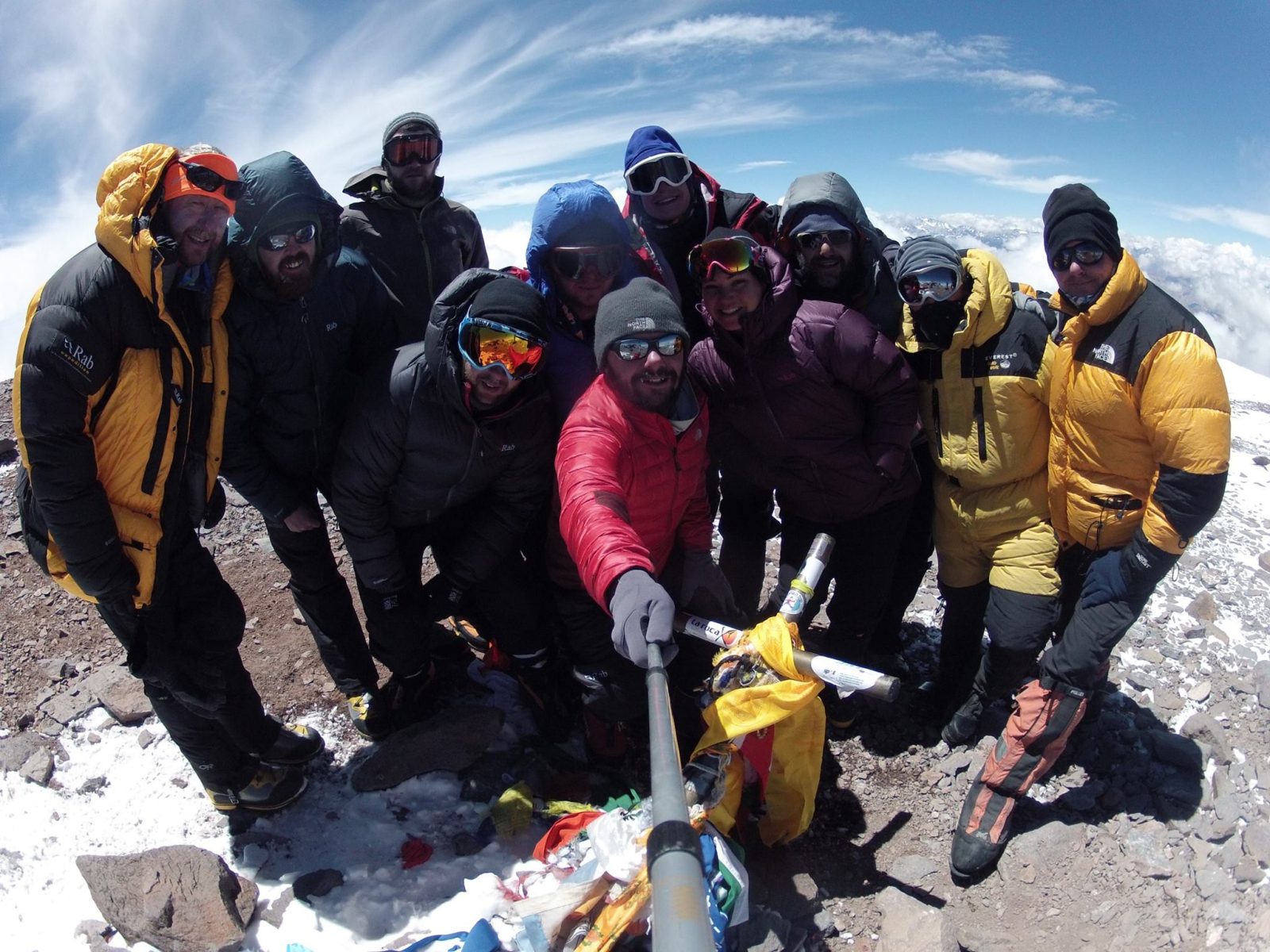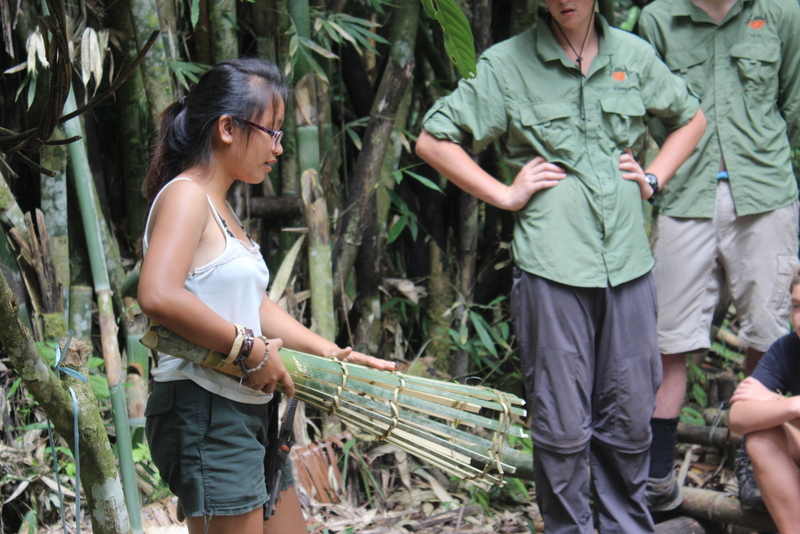
Borneo Preparation
PREPARING FOR YOUR TRIP TO BORNEO
There are a number of pages on this website which provide quick answers and some information on visiting Borneo.
For country information, visit our Borneo Country Information page which covers general questions, culture, laws and some practical answers to common questions.
BOOKING ON THE ADVENTURE ALTERNATIVE SITE
When you book your trip with us you will create an account with a username and password. Please use these to log in to your account from our website (on the main menu options) and you will be able to see all your personal information and your trip information, and you can add information and make interim payments.
Generally people will first email us and check availability, and our staff will either confirm everything in which case you can go to the website page and book your place.
If you would like to organise the trip according to your preferred dates then contact us first and our office in Borneo will help creat the trip with you. This process can take a few days or weeks as we build the trip with you and finalise the price and the details. Once that is agreed then we put your trip up on the website on our Bespoke Borneo page and you can book on.
After that there is a process of us internally creating the trip and putting all the information on our shared spreadsheet. We then need your passport data and any personal preferences plus your flight details for arriving and departing.
A few weeks before the trip we then get in touch and give you a pdf of your finalised itinerary showing any telephone numbers and specifics. On your account with us you can also download information sheets about any of the places you will be visiting, and there is also a wealth of information on our website, for example this page.
Over time you can go into your account and make interim payments or make a bank transfer, and full payment is due four weeks prior to the start of your holiday.
FLYING TO BORNEO
Please check first with us that there is availability for your trip and consider if you would like to arrive a little earlier to acclimatise to the heat and humidity. Visitors from Australia can fly direct into either Kota Kinabalu or Sandakan, if you are coming from Europe or the United States then most likely you will fly through the major hubs of Kuala Lumpur or Singapore. From there you can book a connecting flight to either KK or Sandakan for Sabah, or Kuching or Miri for Sarawak.
For our wildlife trips in Sabah like the Borneo Wildlife Tour, the most convenient point of entry is Sandakan and for Sarawak we would recommend Kuching. If you starting your trip going to Mulu Caves then it will be easier to fly into Miri and similarly for trips into the interior to visit the Penan tribe.
For Mt Kinabalu it will be easiest to fly into Kota Kinabalu. For the islands on the west coast like Sipadan, Libaran and Lankayan then you can still use Sandakan airport.
Flying out of Sabah you can consider going from Lahad Datu if your trip ends up in Danum Valley or Tabin. From Lahad Datu you can fly into KK or Sandakan. Another option a bit further away is Tawau airport.
When booking your flights it’s possible to fly into Sandakan and out of Kota Kinabalu for example and add those connecting flights to the main return journey to KL.
PASSPORTS
We will need to have your passport information, dates of birth and any information you feel we need to know well before the trip starts. You can put all this information on your account profile with Adventure Alternative or you can send it to us as an email. There’s no need to send a picture of the passport, just the data.
HEAT AND HUMIDITY AND PHYSICAL FITNESS
It is not possible to prepare for the heat and humidity if you are in Europe, but it’s easier coming from Australia. For safari holidays like the Borneo Wildlife Tour it might be a good idea to arrive one day earlier than the programme begins to overcome any jetlag and give your body a chance to acclimatise to the change in environment. This holiday and others like Wild Borneo do involve jungle walks which are not a great distances but the humidity is sapping.
if you are planning to climb Mt Kinabalu it’s a good idea to train on a step machine! Mt Kinabalu has a large number of steps which put a lot of strain on the thigh and calf muscles.For descending it’s a great idea to bring poles especially if you have had problems with your knees.
None of our trips to Borneo requires any specific training programmes, but clearly those ones with more walking will be more enjoyable with a bit of training. Whilst out trekking it is generally very hot and sweaty and most hills are steep and muddy. Do take good walking boots, and consider something like gardening gloves for sharp plants and also the sharp rock on the pinnacles in Mulu. There will always be places to wash and cool down in waterfalls and in the rivers so take a costume and a lightweight towel.
For the biking holiday the land is hilly and there are plenty of long days cycling on rural roads surrounded by jungle; the main problem is heat exhaustion so make sure to keep hydrated and bring salts to prevent muscles seizing up during the day. A good option would be Nuum tablets which are great for replenishing electrolytes.
TRAVEL INSURANCE
Please buy your travel insurance after booking your holiday. For most of our Borneo trips a standard holiday cover will be fine but do check the policy if you are climbing Mount Kinabalu. More information is on our Insurance page.
VACCINATIONS AND ANTI MALARIALS
There are no specific requirements for entry to Malaysia and you only need yellow fever if you are coming from a country where yellow fever is prevalent. We recommend visiting your GP or travel clinic to discuss anti-malarials because although the prevalence of malaria is low in Borneo there is a higher prevalence of dengue fever which is also spread by the mosquito. The NHS publish guidance on their Fit For Travel website. There is also further information on Vaccinations and Malaria medications on our relevant web pages.
VISAS
For most European and British passport holders and citizens from Australia and the USA a visa is not necessary. You can check requirements with the Malaysian Ministry of Foreign Affairs. You need to make sure that your passport will not run out sooner than 6 months after your trip date, Do check this early as it can take a long time to process a new one.
MONEY
The local currency in Borneo is the Malaysian Ringgit and there are about 5 Ringgit to the GB Pound. Ringgits can be written locally as either MYR or RM. You can obtain ringgit in the UK before you travel but there are forexes and ATMs in the airports and towns to withdraw cash from major cards. It’s a good idea to get a foreign currency card to avoid excessive charges. You can use your cards to pay for things in the towns but to avoid charges we generally recommend using cash.
The wildlife lodges and places out of signal range will only take cash and you should bring ringgit for things like drinks, souvenirs and also paying for tips. Drinks are western prices for wine, beer, soft drinks. See below for tips. Other cash costs would be paying for an additional wildlife drive. The amount you bring does depend obviously on what you need but in general an equivalent of USD$150.00 or GBP£120.00 each will be enough.
PAYING FOR YOUR HOLIDAY
When you book your holiday the website will offer you a choice of the following:
Credit or debit card payment – deposit of £100.00 or full payment. If you pay money now then you will get your invoice and receipt by email.
Bank transfer – you will get an emailed confirmation of your booking and the details of our bank account in the UK to make a transfer. Please let us know when you have done this so we can manually update your account.
Wise for international transfers or other currencies including sterling if paying from abroad – you will get an emailed confirmation with the Wise bank account details. Please let us know when you have made a payment.
For interim payments or instalments you can go into your account on our website and go to the trip details and scroll down to see the payment option. This will let you choose how much money you wish to pay.
FOOD IN BORNEO
Borneo street food compares favourably with the likes of Vietnam and Thailand. However, anyone who has tasted a longhouse or village feast cooked with jungle vegetables and washed down with some Tuak (rice wine) will rank it as some of the most memorable of the region.
You can buy Asian food, Chinese food and western food in the cities, and the seafood is of course very good. Vegetarians have no problem but vegans will need to check menus carefully. Most lodges can cope with dietary needs such as celiac and gluten free. Please let us know in advance so we can advise the lodges.
Compared to other areas in the region, standards of cleanliness are high. Minor upsets can be expected due to a change of diet. Bottled water is always safe as is boiled or filtered water provided in hotel rooms and lodges villages. Ice cubes are generally ok as they are factory made but it’s good to check in public restaurants, but avoid ‘shaved’ street ice.
MEALS ON THE ITINERARY
Generally speaking if it’s a whole day in the itinerary then we will include breakfast, lunch and dinner, unless it’s a travelling day when the driver will stop at a local restaurant and you can choose from a menu and self-pay for lunches. In the lodges there are menus prepared for each day, and most meals are served from a buffet.
For arrival and departure days it depends on the time of your flight and the time of transfers. A late arrival at Sandakan will mean we include dinner on the itinerary for example. An early departure from Danum Valley to get to Lahad Datu airport will mean a breakfast is included.
A meal at places like Sepilok, Telupid or Lahad Datu is around RM30.00. This is around GBP5.00 or USD$7.00.
In Kota Kinabalu, Miri and Kuching the hotels will have a buffet breakfast but we let people buy their own meals in town if it’s a sightseeing day. Once you leave for a tour to Bako or wherever then we include the meals again. Similarly at Mulu the meals are all provided once you arrive.
You can buy snacks around the towns and enroute to the reserves and in some of the lodges. It depends how remote the accommodation is. But generally you could say there is plenty of chance to buy snacks, drinks and fruit. If you have your own favourite sweets or snacks from home then you can bring them but don’t forget the heat and humidity will melt almost everything. Driving to Deramakot for example your driver can stop in small places to buy snacks and drinks but once the road turns onto the logging tracks and roads then there won’t be any more of those shops.
In Sarawak when you are visiting the villages and centres you can buy some snacks and cold drinks and souvenirs but generally the rule would be the further away you go from the city the less opportunity there is.
COSTS AT SEPILOK
We don’t include a guide on the day of arrival at Sandakan because most people coming from Europe arrive mid to late afternoon and generally want to relax in the lodge.Most people do the centre visit on the next day when you have the whole day to enjoy the orangutan centre, the sunbear centre and also the rainforest discovery centre.
If you are visiting the centre yourself then you can take a taxi or use the online app Grab which is ubiquitous in Malaysia for everything from rides to meals. Sepilok is 30 minutes from Sandakan town. The costs in cash are as follows:
Rainforest Discovery Centre (RDC) visit – RM30.00
RDC night walk – RM150.00
Sepilok orangutan centre – RM30.00 (valid all day so you can use the same ticket to come back in the afternoon)
Camera lens bigger than 600mm – 1000 RM.
Sunbear Centre – RM50.00
There are two feeding times at Sepilok, morning around 10am and afternoon around 3pm. Morning time is busiest. Volunteers will be laying out the fruit for the orangutans but the apes will only come if people are quiet. It’s very well worth visiting the outdoor nursery a few minutes further on from the feeding platform because you can watch the juvenile orangutans learning through play and social interaction.
Ticket counter openings times are 09:00 – 11:00 and 14:00 – 15:30
The feeding platform and Outdoor Nursery opening hours are: 09:00 – 12:00 (On Fridays they close at 11:00) and 14:00 – 16:00.
TIPPING
No need to tip staff at restaurants or lodges, but it’s customary to tip your guides and sometimes your drivers. Someone doing a two hour transfer do no expect anything but if you did want to give something then 50 MYR would be sufficient. River lodge guides if on a private basis could get 100 ringgit per day per group, but the Deramakot guides who are working at night generally get more, around 150 ringgit per night per group.
LOCAL TAXES
There are three taxes to consider on a trip to Borneo, two are included in your invoice and one is paid in cash by yourself.
- 6% service tax for hotel rooms on accommodation cost – included in your invoice
- 6% government sales tax on total cost of your holiday – included in your invoice
- Hotel tax of 10RM per night which most hotels ask for but not all – this is paid by the client in cash.
WILDLIFE GUIDES AND VEHICLES
We have our own full time wildlife guides at Adventure Alternative Borneo and they are very experienced and knowledgeable. Mike Gordon has his own wildlife channel on youtube an you can follow him on instagram. The vehicles at Deramakot are pooled and operated by one agency nowadays; to some extent you can go and choose your vehicle on the day but generally the drivers will be allocated their car. The cars are not all the same so some have better vision to the front than others but you can easily stand up in them. We would recommend monopods rather than tripods because of space.
We always ask clients whether they prefer private guides or shared guides at some of the locations and on the itinerary it will show which ones you are having. Obviously a private guide is more expensive and at the moment people are booking up to a year in advance for private photography groups, so a lot depends on availability. The guides will work on two to three week shifts and then take a break.
At Deramakot, Danum and Tabin we can provide private guiding or shared guiding. The vehicles can take up to seven people and in our itineraries at Deramakot we provide 7 hours of vehicle use in every 24 hours. Extra hours are 250RM per hour, paid in cash on the spot. Wildlife drives are normally at dawn and dusk but with seven hours you can go through the night, it’s a flexible system agreed between the group and the guide.
On the Kinabatangan river the lodges have their in-house guides so the boats are shared and they go out at dawn and dusk. We don’t generally provide our own guide for these locations because the river guides know their area very well. Our drivers will provide the transfer to the jetty for the particular lodge and you will join other clients and off you go.
At Tabin we bring our own guide and add an extra private safari to the standard itinerary which we think adds a lot to the experience. The local in-house guides are good but we feel we can add more by adding our guide. At the field centre in Danum Valley we provide our own guides too, but we do also use a lodge just outside the main entrance gate.
In Sarawak we provide our own guides too for visits to the cultural centres and parks like Bako. The guides will come to your hotel and meet you for the day and arrange any overnights. At Mulu we have our own guide who meets you off the plane and looks after all your visits to the caves. If you are going to Camp 5 and the Pinnacles then we hire in a specialist guide.
On Mount Kinabalu we arrange the logistics and the accommodation, but the mountain guide is allocated by the Park. You meet your guide at the gate when you enter and sign in.
We have two offices in Borneo, one in Kuching and one in Kota Kinabalu and a team of full time staff who prepare all the trips and keep in touch with all the drivers and guides all the time. In Kota Kinabalu the main member of staff to keep in touch with is Leny Subimo and her number for contacting on whatsapp is +60 10-959 7647. in Kuching the main person is Angela Pengiran and her number is +60 19-892 9627. When you are in country these are the two people to keep in touch about the details.
WHAT TO TAKE
This depends a lot on what type of trip you are doing, from wildlife watching to mountain climbing or biking or hiking. We have a page entitled Borneo Clothing Advice which hopefully will answer all the questions.
From an environmental perspective please do bring biodegradable products, especially soaps and shampoos. We would also like to ask people to take out their own rubbish which is recyclable; sometimes this means putting it in a bag and taking it all the way back home where we have better recycling facilities.
For Mount Kinabalu there is a more specific kit list which includes all you need for that particular trek. There is also a page entitled Health and Comfort which mentions first aid, climate, leeches and malaria.
SAFETY IN BORNEO
Borneo is a safe place to travel, locals are trustworthy and welcoming. It is unlikely anyone will give you the hard sell nor rip you off, though of bargaining is part of the experience. Most locals have a basic level of spoken English but in the lodges everyone will speak very good English and a smattering of other languages too.
Street crime and begging is practically non-existent but be wary when leaving cash machines and normal levels of awareness should be upheld. Be mindful of any shows of wealth.
For emergency situations in Borneo where evacuation is necessary then generally we can use vehicles and boats and planes, and the staff manage the optimal solution to the particular situation and the location. The Health and Comfort page includes some information on helicopter rescue from remote areas.
LAUNDRY
At Deramakot you can get laundry done for 30 ringgit per bag but Tabin does not offer the service. River lodges will charge as follows: T-shirt rm5, underwear rm3, socks Rm2, long trousers rm10, long sleeved tops rm6.
MOBILE SIGNAL AND WIFI
At the lodges and hotels in the towns you will have wifi and be able to use whatsapp and so on, in the reserve lodges you can get mobile signal in most places except Deramakot. If you would like to buy a local sim card then Celcom is probably the best for signal to these places.
WATER
All locations provide filtered or boiled water. At Deramakot guests can fill their water bottles in the dining room and we do strongly recommend bringing your own water bottle and not buying single use plastic bottles. By all means do bring your own purification methods such as tablets or a steripen, but these would be more useful on the more remote trekking trips.
ROOMS IN THE LODGES
The rooms will have beds with mattresses, pillows, sheets, blankets and nets, and most of them will have ensuite bathrooms with a flush toilet and a shower. There will be electricity, and at night generators are used but these are turned off at a certain time. The rooms will have lights and sockets (UK three pin style) for charging and there will be storage space to hang your clothes. Everywhere will have nets over the beds.
The lodges we use are generally all of a similar standard but obviously there are different grades of room. The biggest difference would be whether they have air conditioning or a fan. The chalets at Deramakot have air conditioning for example. At Bako Park they offer both. Danum Valley Field Centre has both. At Mulu there’s a wide range of rooms, from the 4 star Marriott rooms to the Park HQ rooms with fans and then dormitories. When you come to discuss your holiday with us make sure to give your preference.
If you are going to more remote areas like Camp 5 at Mulu or on the mountain, or sleeping out at the jungle survival camp or overnighting in villages then it’s a good idea to bring your own sleep sheet. You can buy these made out of cotton or make your own out of a bed sheet.
MOUNT KINABALU PRICES
There is a cash price to pay for climbing the mountain and you can see the exact breakdown on the Mt Kinabalu page. Our trip price includes the transfers and accommodation but not the mountain guide, entry fee, peak permit, local insurance and park transport. All of these prices are required to be paid by the individual as a policy of the National Park. As a guide, this works out at about £126.00 per person for a couple.
FIG PLANTING PROGRAMME
As a matter of policy Adventure Alternative Borneo makes a donation of 100RM for each client towards a fig planting programme in east Sabah. This video will help in explaining the importance of figs to the biodiversity of the region, especially in degraded forest areas caused by logging. If you would like to donate separately to this project and perhaps consider using it to offset your flight emissions then please get in touch.
Book Your Adventure of a Lifetime Now
Discover our trips to other Countries
Adventure Alternative Articles

12 MONTHS, 12 MOUNTAINS
Climbing Calendar Ready for World Mountain Day In celebration of World Mountain Day, we've created a calendar for the year to make it easy for...

Mount Aconcagua Trip Review
January 2016 This year we had a team of twelve clients from four different countries – Iran, Ireland, England, South Africa and Argentina –...

Alcey’s Survival Skills Course at Lupa Masa Jungle Camp
SURVIVAL SKILLS COURSE AT LUPA MASA JUNGLE CAMP | ADVENTURE ALTERNATIVE In celebration of International Rural Women’s Day, we’re talking...